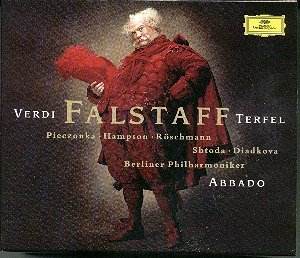

All three are knights who have seen better days. We meet Sir John Falstaff sitting in the Garter Inn, with a pair of scruffy companions, Bardolph and Pistol. From then on, the action is fast and furious. Verdi immediately signals the comic nature of the work with an oddly off-beat C-major chord. It had its premiere at La Scala in 1893.ĪCT ONE: The opera is set in Windsor, England, in the early 15th century, during the reign of Henry IV. Boito worked up a rough draft, Verdi loved it, and by 1890 the two had completed Falstaff. It was his friend and librettist Arrigo Boito who suggested The Merry Wives of Windsor. Verdi was famous for his love of Shakespeare, and already had Macbeth and Otello under his belt when, while in his late 70s, he was casting about for the subject of a new opera – this time a comedy. The score is overflowing with wit and revelry, and brims with insights into human nature. Even so, you'll find that the roly-poly knight takes on even more vitality in Verdi's final opera. But he doesn't fool anyone, and ultimately the "fat Knight" learns his lesson.įalstaff thinks he's at the mercy of mysterious woodland 'spirits,' in the final scene of Verdi's Falstaff.īACKGROUND: You may be familiar with Sir John Falstaff from a trio of dramas by Shakespeare: Parts 1 and 2 of Henry IV, and The Merry Wives of Windsor. So he sets his sights on two rich women, and writes them love letters. In Falstaff, the title character is running out of money and looking for a quick fix. Even more remarkably, Verdi wrote thee of those: Macbeth, Otello, and Falstaff. Remarkably, only a half-dozen or so – about 2 percent – have even paid a visit to the standard repertory. All manner of composers have tried it, resulting in some 300 Shakespeare-based operas. Historically, the plays of Shakespeare have been particularly difficult to translate into opera. In the case of Giuseppe Verdi, however, the phenomenon simply validates his genius.
/verdi-falstaff-opera-synopsis-5839fccd3df78c6f6a6f5983.jpg)
When it's tried with true masterpieces, maybe there are so many variables, egos and expectations involved that the whole mess just gums up the works.

Have you ever been disappointed by the film version of a favorite novel? Ever stayed away from movies or plays based on stories from any other medium because experience tells you that sort of transition is almost never successful? If so, who could blame you?Īdapting any work of art to another genre is tricky business, and it seems the better the original the harder it is to transform it.


 0 kommentar(er)
0 kommentar(er)
